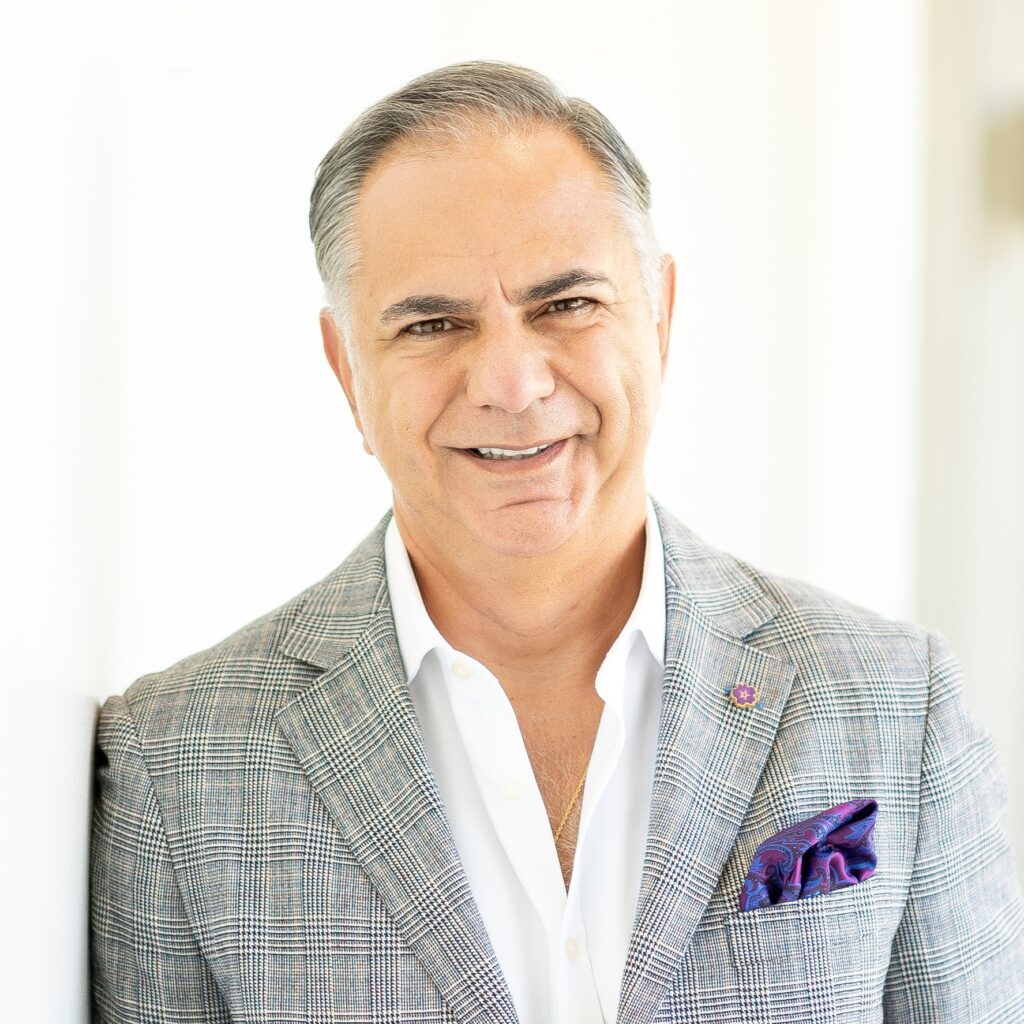Meet Robert Popovian, PharmD ’93, MS ’96, founder of the strategic consulting firm Conquest Advisors, chief science policy officer for the Global Healthy Living Foundation and recipient of the Dean’s Medallion Award at the 2024 USC Mann Alumni Awards Gala. He is also senior health policy fellow at the Progressive Policy Institute and visiting health policy fellow at the Pioneer Institute, and previously served as vice president, U.S. government affairs, at Pfizer.
In a few sentences, please describe your career trajectory, including your current work. What are you most proud of in your career so far?
I am the founder of Conquest Advisors, a healthcare policy, economics, and public affairs consulting firm. I also have affiliations with the Pioneer Institute, the Progressive Policy Institute, the Schaeffer Institute, the Global Healthy Living Foundation, Rutgers University, and the University of Southern California. In my past life, I worked in the biopharmaceutical industry, where I held leadership positions in health economics and outcomes research, medical affairs, and most recently, vice president of government affairs at Pfizer. Basically, I enjoyed three separate and distinct careers in my tenure at Pfizer.
The ultimate goal of every healthcare professional is to help patients. I have been fortunate that during my tenure at Pfizer and my current position, I have been afforded the unique opportunity to conduct, publish, and communicate primary research findings regarding policies that hinder patient access and affordability to life-saving medicines. My analysis has been utilized by legislators nationally in developing policies that ultimately help patients access affordable life-saving drugs in every demographic.
What originally attracted you to your field? Any particular moment(s) that made you stop and think, “This is the path I want to take?”
I am a second-generation pharmacist. I was always more interested in treatment than diagnosis. Diagnosis is an essential step in the process, but ultimately, biopharmaceuticals are the answer every patient desperately needs. Regarding my path to health economics and policy, I was a pharmacy practice and infectious diseases resident at the LAC-USC hospital during the height of the HIV and AIDS epidemic in the early 1990s. I was always involved and cherished individual patient care, but during those trying days, I realized that policies set forth by our national leaders impact patients on a larger scale than a singular patient decision made by an individual clinician. I was taken by the power of health policy issues commonly driven by economic priorities that impact millions of patients.
How did your early experiences as a student at USC guide your career? Anything specific to share about how the resources, faculty members and/or alumni at USC helped prepare you for what you are doing now?
I will always be indebted to the USC faculty for providing guidance and education to maximize my talents. Individuals such as Jeff McCombs, George Jaresko, the late Kathy Johnson, Mel Baron, and Mike Nichol, among many others, were instrumental in my development as an individual and a professional. They all started as a teacher; then they became a mentor. Our relationship evolved as we became colleagues and completed, as I am now proud to call them friends.
What advice do you have for students who may be interested in following a similar path to yours? Why do you think students should consider attending the USC Mann School?
I was never the most brilliant student in the class. However, I was the one who was willing to take a chance, to raise my hand, and to take the path least traveled. I was willing to make myself uncomfortable. I believe everyone has the innate capacity within them to maximize their talents. I also reckon that most students are resistant to taking that chance. They are not willing to raise their hand for fear of failure or embarrassment. At USC Mann, you gain knowledge to become an outstanding pharmacist while the school nurtures you to maximize that education to achieve your best self. You learn how not to fear failure or, more importantly, how to optimize success. Students are provided every opportunity to succeed more than any other school I have been fortunate to be affiliated with. That is the difference between USC and the other universities.
What does the phrase “Trojan Family” mean to you?
It’s not just a slogan. At USC, the spirit of family is practiced daily. This essence has been passed on from one class to another within the Trojan family for the past 100 years. For me, it means I have to help the next Trojan achieve their lifelong dream in whatever professional or personal endeavor they have chosen.
Tickets for the 2024 USC Mann Alumni Awards Gala can be purchased by clicking here. For more information, visit the event website or contact Cheryl Stanovich, chief development officer, at stanovic@usc.edu.


